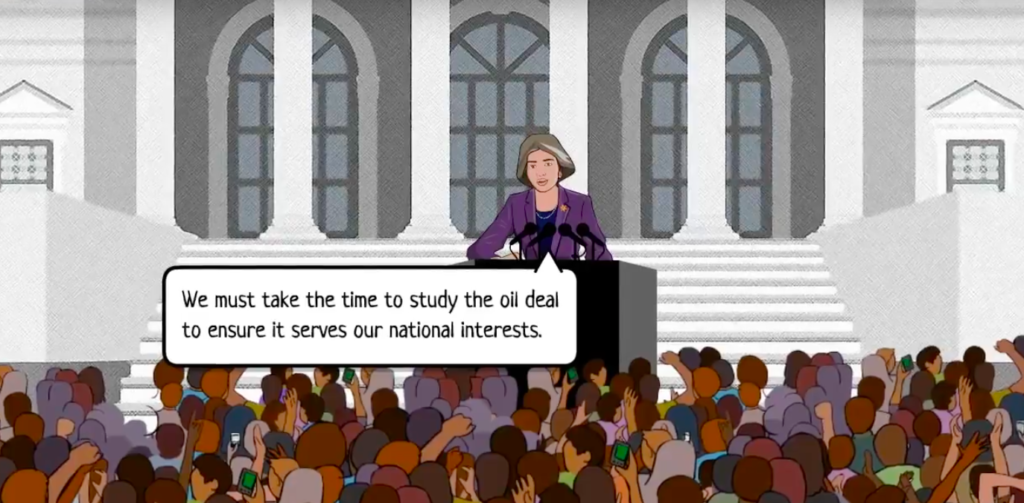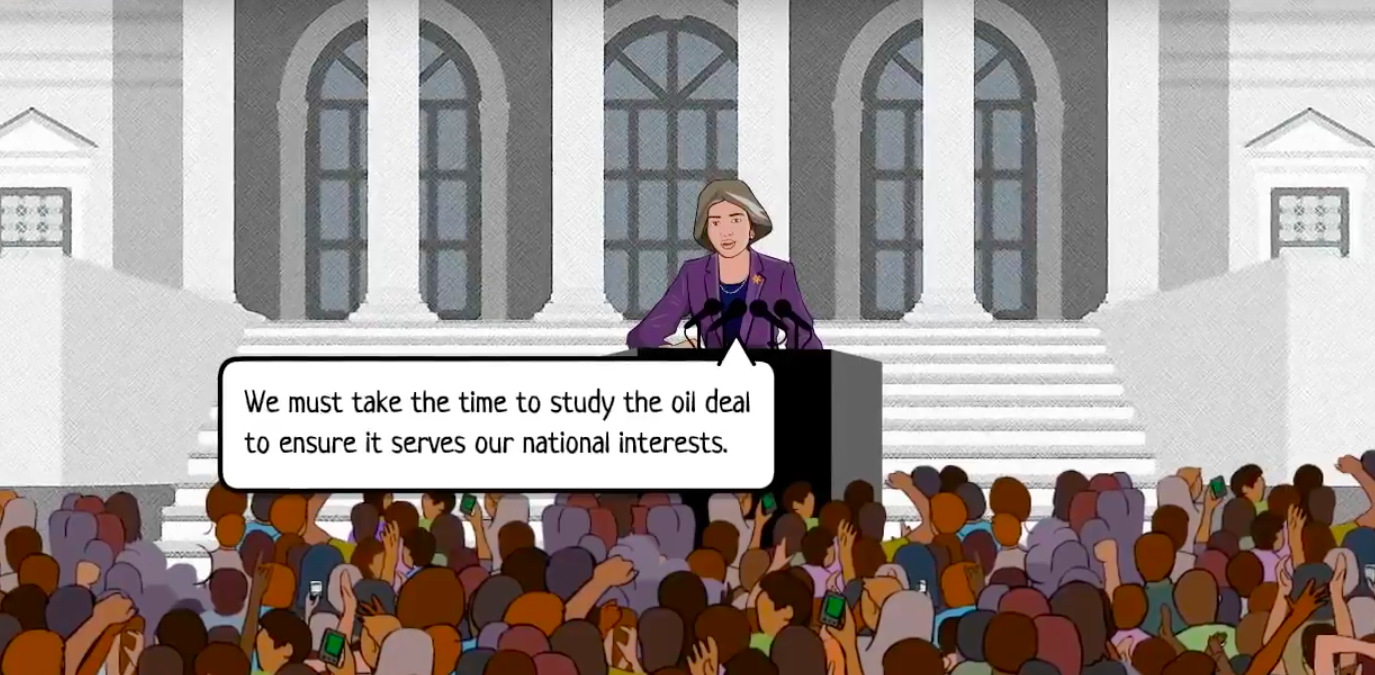Guest post by Jeff Mosenkis of Innovations for Poverty Action.

- Petronia (above), an online course and game from the National Resource Governance Institute, lets users run a fictional country where oil is discovered to see if they can avoid the resource curse. (h/t David Batcheck)
- From the Stata journal– A new command, baselinetable, creates handy summary stats tables for your baseline reports to make sharing your findings much easier. It exports to Stata, Excel, CSV, etc to make it really easy to create better tables for your reports. In Stata use: net describe st0524, from(http://www.stata-journal.com/software/sj18-2)
- Summer podcast listening:
- I listen to a lot of podcasts, and Rough Translation (Apple) from NPR is one of my perennial favorites*. They look at how a question we deal with in the U.S. is playing out elsewhere in a fantastic RadioLab/Planet Money style that really brings you there. This season includes how a sexist Argentinian talk show suddenly turned feminist, trying to improve Ghana’s preschools, and how apologies translate across cultures and the self-described housewife who brokered an international one.
- Displaced (Apple) from Vox and the International Rescue Committee is really good, about different aspects of international migration. The hosts and guests are both very knowledgeable and it’s very well-produced. Each episode is a master class in the subject.
- The Freakonomics conversation with Richard Thaler reflecting back on his career and a offering peek into the Nobel award experience was fun, and it was nice to listen to old friends sharing a laugh.
- For the more insider talk on econ, the Neolib podcast (Apple) Noah Smith and Rachael Meager episodes were interesting.
- Having come to economics from other fields, I think econ has a massive blind spot in measurement. Note that when you say “measurement,” most economists will immediately start clustering standard errors in their heads. But on the World Bank Data Blog, Matthew Lokshin asks about the underlying data quality. When we fiddle with the stats, what if we’re watering the garden while the house is on fire? He shows how in one survey, answers changed as the survey went on, perhaps as surveyors figured out which questions would send them into loops of follow-up questions. There are so many ways for the questions you ask and the way the survey is carried out to change the data, why don’t more people pay attention to the data collection process? Or, as Thomas de Hoop responded, “There seems to be a too strong belief that measurement error is almost always random.”
- Measuring women’s empowerment can be really difficult (especially if you want to cross contexts or be comparable to previous studies). J-PAL has a new Practical Guide to Measuring Women’s and Girls’ Empowerment in Impact Evaluations.
- If you missed the bizarre story about the U.S. threatening other countries about breastfeeding guidelines, here it is. More background: Anttila-Hughes, Fernald, Gertler, Krause, & Wydick estimate 66,000 infant deaths in 1981 alone from the promotion of formula feeding in low- and middle-income countries where the water is dangerous for babies. But the conversation that followed seemed to conflate policy on breast vs. formula feeding everywhere. My understanding of the research is that it’s the water that’s the dangerous part, and there aren’t massive health benefits to the children in wealthy countries (but check with Emily Oster’s forthcoming book).
- From last year, but worth a look: Michael Clemens looked at data from all of the nearly 180,000 apprehended unaccompanied children apprehended coming into the U.S. from 2011-2016 from El Salvador, Honduras, and Guatemala. He then tried to estimate the relative contribution of poverty vs. violence in their home regions to the migration. He estimates both play a roughly similar role, but also that even short-term increases at home lead to long-term sustained departures. One amazing note:
…the number of 17 year-old migrants apprehended during this period was over 8% of all 17 year-olds in the region at the beginning of the period.
- And a Polish environmental charity got a big phone bill, thanks to a a stork that was being tracked with a GPS tracker. The tracker was last located in Sudan, but someone found it, took out the SIM card and racked up $2,700 worth of phone calls.
[* Disclosure, I played a very small part in the early development of the show, but that doesn’t change my recommendation for it]


11 Responses
good
good
good
good
good
good
good
good
good
awesome post!!
thank you very much for sharing
nice